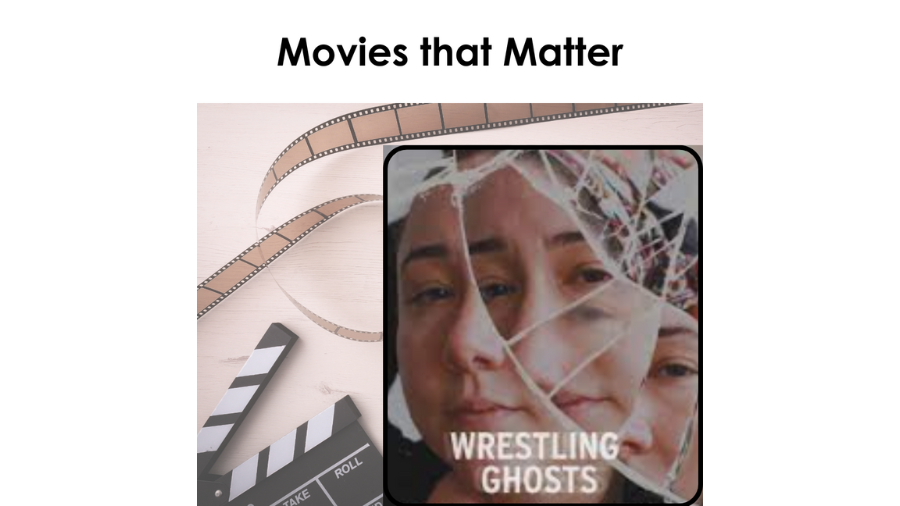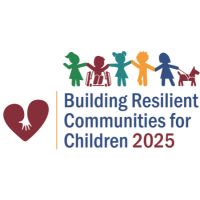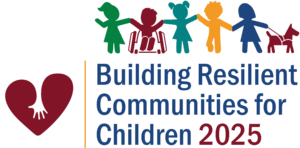A Discussion with Rick and Doris Bowman (Bowman Consulting)
ATN completed its commemoration of Children’s Mental Health Month (May) and PTSD Month (June) with a final screening and discussion in a three-part series of Trauma-Informed Movies that Matter. On June 27, Rick and Doris Bowman of Bowman Consulting joined ATN representatives to lead a discussion of the film Wrestling Ghosts. Bowman Consulting is dedicated to partnering with organizations, agencies, communities and systems to provide training, coaching, consultation and support to staff serving children, youth and adults who struggle as a result of trauma, neurodiversity, developmental differences, or mental health challenges.
Wrestling Ghosts is a powerful and emotionally gripping documentary that follows the journey of a mother as she grapples with the impacts of intergenerational trauma, grief, and guilt. Through powerful storytelling and intimate conversations, the film captures the raw, heartbreaking, and transformational moments on her path to healing complex trauma. Attendees shared their visceral experiences watching – particularly that it was quite difficult to watch and emotionally triggering, but that the mother’s authenticity and courage to share evoked compassion and provided a deeply intimate and true depiction of intergenerational trauma and suffering. One attendee shared, “I found myself in tears because it was triggering feelings for the child in me that I’m not so sure is as healed as I thought.”
Attendees openly described their own personal experiences and both asked for and received support and resources from others. One theme that emerged was how childhood trauma impacts the experience of emotions. One individual shared how she has kept her emotions locked under tight control: “I don’t like the fact that I can’t show emotions around others like I feel it’s normal to show. How are they going to judge me? How am I going to say that?” Other attendees echoed such impacts in their own lives. Rick emphasized that “trauma puts us in our head where we are always overthinking.” He noted that both in his role as a therapist and in his own therapy sessions that questions of “how do you feel about this?” led to a sense of “I don’t know how I feel about this, but I can tell you what I think about it. Trauma can sometimes take that emotion away.” Doris shared similar challenges in the ability to feel her own emotions and noted how helpful she has found tools such as the HeartMath technique in moving emotions from “head to heart” and more broadly in supporting self-regulation in stressful states and promoting overall physical and emotional well-being.
The complexity and weight of intergenerational trauma, shown in an intensely transparent way throughout the film, was a prominent theme in the group’s discussion. Viewers witness the documentary subject’s own mother, who is interviewed briefly sitting alongside her daughter, acknowledge the suffering she caused her children and her depression and self-medication attempts. She says, “I wanted to be a mother and to raise my children differently than my parents did. But I came from such a dysfunctional family… I know my mother loved me, but she was a product of her own more abusive childhood.” Her pain is evident as she speaks, and we are reminded of the intermingled love and suffering that makes such cycles across generations so difficult to break. Trauma tends to make its way generation to generation in part because individuals who have experienced childhood trauma, on a neurobiological level, can experience more challenges in responding in helpful and developmentally appropriate ways to their own children. Attendees shared their own experiences within intergenerational trauma patterns, particularly their intention to do things differently for their own children, feeling regret when they felt they failed, and the power of recognizing incremental growth and healing across generations (quotes lightly edited for clarity and length):
- “My son has shared that he has found as a parent himself that parents who want to continue to work on themselves are the best parents. That even at my age that I was trying to change things – he was proud of that. You do catch yourself being like your parent was in ways you don’t want to be, but I feel like I’m doing a better job. I do see the ways he raises his daughters. It is healthy and healing to go back and see that and to look forward… and to give yourself credit for what you did differently.”
- “I decided that I didn’t want to do the same things that were damaging to me as a child. My daughters are still breaking the trauma chain, and I love that they are finding places for growth and loving change with their own children and doing things like co-regulation. I have gone back and apologized for (moments I didn’t feel good about), and they were so gracious which has helped me forgive myself. They know I did the best I could with the trauma background I had.”
- “I see my daughters doing more of these attachment-building things with my grandbabies. Occasionally I have a thought of regret about parenting that floats through, but I think ‘they couldn’t have gotten here, if I hadn’t gotten there.’”
As discussion wrapped up, Julie Beem of ATN described childhood trauma as something where “people are either of the opinion you should get over it quickly or you never get over it.” She noted that the truth is really in the “messy middle” as there is hope but it isn’t easy, and that individuals willing to engage are brave enough to work toward healing. After sharing his own experience in addressing and healing his trauma history, Rick noted how important communities and forums like these are for this work, “We need to feel like we belong. We need to be with people where we can cry and share emotions and tell our stories. I am thankful for this meeting tonight. I am thankful we can do this.”
Resources –
Check out the official Wrestling Ghosts website to view the film and to access resources.
Learn more about the HeartMath technique.
Explore the training, coaching, consultation and support offerings available through Bowman Consulting.
Learn more about ATN programs, including free online support for parents and Team R&R for community educators.



